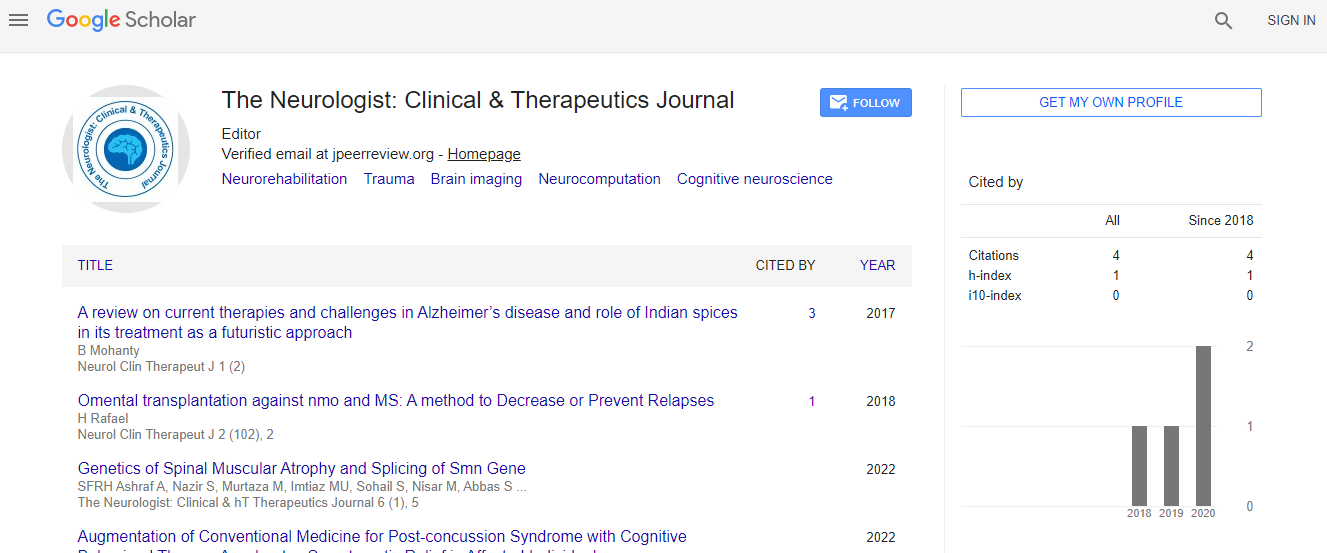Regenerative potential of M2-polarized anti-inflammatory macrophages in the context of inflammation-based neurodegeneration in a model of APP脦虏+ Alzheimer disease
*Corresponding Author:
Copyright: © 2020 . This is an open-access article distributed under the terms of the Creative Commons Attribution License, which permits unrestricted use, distribution, and reproduction in any medium, provided the original author and source are credited.
Abstract
Lately, there is accumulating evidence evidence for silent inflammation as a major contributor to Alzheimer Disease (AD), associated as one potential underlying pathomechanism. This includes innate immunity, specifically M1-polarised inflammatory macrophages which trespass the blood brain barrier. Using wild-type and amyloid precursor protein β protein transduced mice we compared the cognitive abilities of four different experimental groups (n=8). 1. Wild type mice (not transduced with APPβ), 2. APPβ+ animals treated with saline, 3. APPβ+ mice treated with radiated (7 gy) REMs (M2-polarized anti-inflammatory macrophages), and 4. APPβ+ mice treated with non-radiated REMs. REMs (radiated and non-radiated) were injected intravenously into APPβ+ animals at the age of 2 months. Cognitive capacity was tested using a water-maze and labyrinth test model, at the age of two months (young mice) and at 6 months (old mice) of age. We found a significant reduced capacity of learning and orientation capacities in all four groups when comparing young and old mice. There was a significant cognitive decline when comparing wild-type animals with APPβ+ animals treated with saline (p<0.01) or radiated REMs (p<0.01). Treatment with non-radiated REMs prevented the development of AD in all 8 animals tested whose cognitive functional scores did not differ significantly from wild-type animals. In a pilot observation n=7 Alzheimer patients were treated with autologous REM´s generated from patient’s monocytes. Based on MMSE (MINI-Mental-State-Examination) n=4 patients had an improvement of the cognitive activity. Our results indicate that the anti-inflammatory properties of regenerative M2-polarized REM macrophages is able to prevent astrocyte and microglial activation in APPβ+ animals and underscores silent inflammatory-based neuronal damage as a major pathomechanism in this animal model. Additionally, first clinical results show that this cellular therapy has a positive effect on the cognitive activity of Alzheimer patients.

